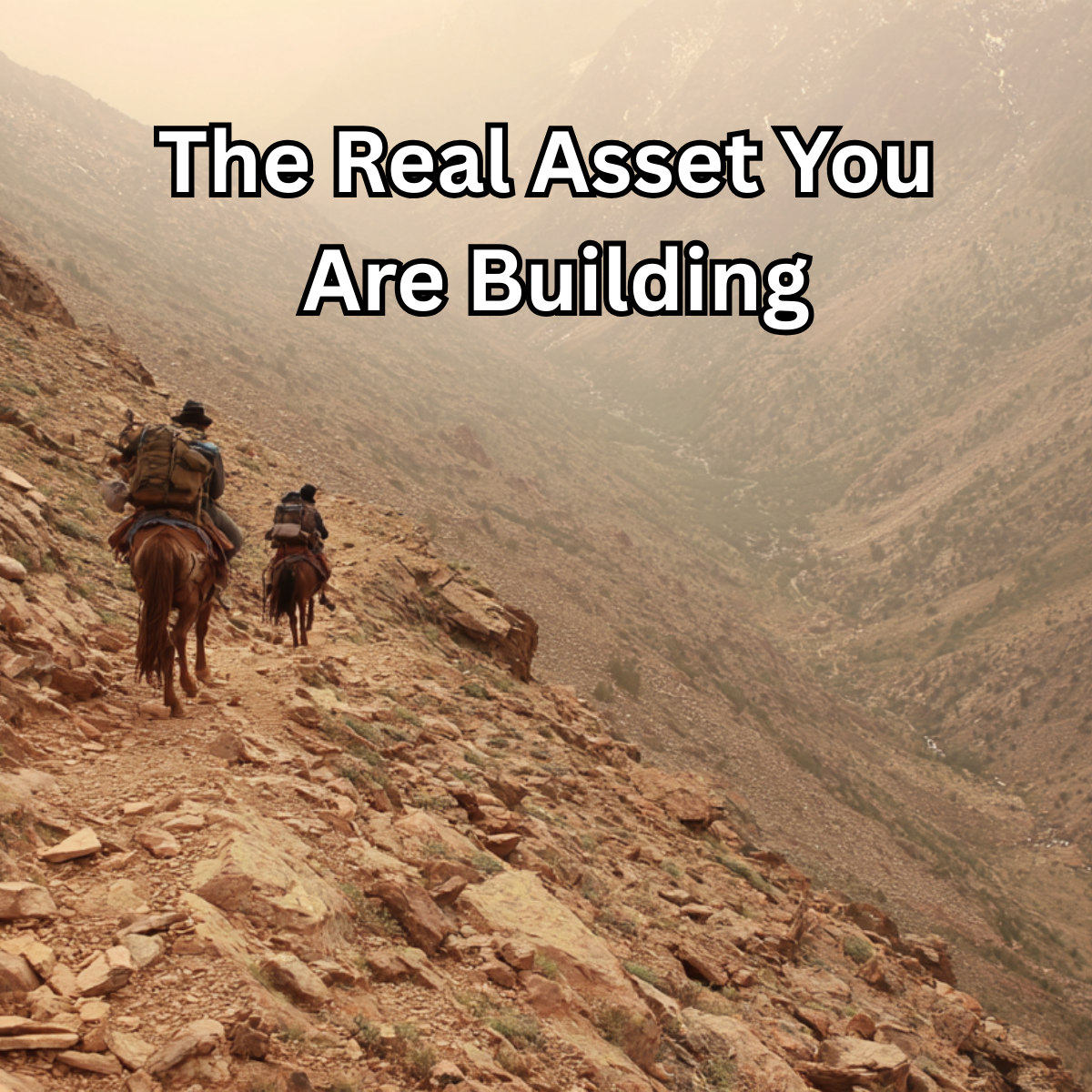When I was a kid, my father was wrestling with a stubborn tire on a scorching afternoon. The tire had gone flat in the night after he had just changed it. That felt unfair to him, and he was frustrated. These were the days when steel belted radial tires inspired more doubt than confidence. He rolled out an air compressor to get that tire filled fast so we could limp the car to the shop and buy another. The gauge climbed, the tire rounded, and just as he reached toward the switch to turn everything off, the tire exploded. The blast knocked him back several feet. The sound was a crack of thunder in our driveway. I still remember the smell of hot rubber and dust, and the way silence rushed in after the echo faded.
That moment lives in my head as a quiet warning. Do not inflate too quickly.
Over the years I have found the warning applies to more than tires. It applies to plans, companies, and people. Fast inflation feels attractive; it promises quick progress and a story worth telling. Yet it often ends the same way a rushed tire ends. With a blowout that leaves you further behind than when you started. In my experience, there is something worse than failure. It is sudden success that finds you unprepared, the kind of win that exposes the weakness you have been ignoring. You do not enjoy that victory. You spend it patching leaks and cleaning up debris.
The tire offers a simple picture. A tire needs the bead to seat evenly on the rim. It needs attention to the seal and the fit. You do not do that well with impatience. You do it with care. You add pressure in stages and you check as you go. That is boring, and that is the point. Boring is dependable. It gets you where you are going.
The same goes for how we inflate our plans. We stack ideas, we gather resources, we take the first win, and the temptation is to twist the knob to full power. We accelerate hiring, we throw money at everything that moves, and we do not see the small failures that warn us where the seal is weak. Then, when the pressure is highest, it fails all at once.
I have learned to prefer a different pattern. First, seat the bead. That means define the purpose, the boundaries, and the failure conditions. Decide what you will not do. Decide what you will stop if certain signals appear. Then add pressure in stages. Run a pilot, narrow the scope, and watch the gauges that matter. If the edges wobble, if a noise you cannot place keeps repeating, stop and reset. Finally, keep a release valve. Have rollback plans. Have the humility to slow the compressor when your ears are telling you the tire is not ready.
Now, the most common and costly version of inflating too quickly happens with people. You meet someone who shines. They have natural talent. They talk well. They pick up complex things in a day that others take a month to grasp. You want to keep them. You want them happy. So you inflate them. You praise too early, you promote too fast, and you hand them a crown they have not carried the weight to earn. I say this with some regret because I have been on both sides of that story. I have been the young and eager technical person who received too much too soon. I have also been the executive who gave it.
When you overinflate a person you create a false measurement. They begin to associate attention with progress. They learn the wrong lesson about effort. Their compass points toward applause instead of craft. You might see an early rush of results, but you also see shortcuts. You see the habit of starting without finishing. You see talent that will not take feedback. You see a growing fear of hard problems that do not produce quick wins.
I have watched rising talent with real promise drift into a lazy orbit because the rewards arrived untethered from the work. The tragedy is not that they failed. The tragedy is that we never found out what they could have become. We did not seat the bead before we pumped in pressure.
If you lead people, slow your compressor. Build a path that rewards the right signals.
Reward showing up every day. Talent is a gift. Reliability is a decision. Celebrate the person who arrives prepared and on time, who keeps commitments when no one is watching.
- Reward completion. Start lines are exciting. Finish lines build cultures. Praise the ones who close loops, write the documentation, clean up the tools, and make it easier for the next person.
- Reward teachability. Make feedback normal. Make it specific, calm, and frequent. Notice those who can take a note without argument, adjust their approach, and try again.
- Reward learning from mistakes. Put more value on the debrief than the victory lap. Ask what changed in the method, not just in the outcome. Encourage simple systems that prevent the same error from repeating.
- Reward service to the team. Look for the person who lifts others, who shares context, who gives credit, and who leaves the environment better than they found it.
These rewards create a steady kind of pressure. They help a person expand in a way that is sustainable. Responsibility grows with trust. Scope follows proof. The dignity of their role increases because their character can bear it.
If you are the one being inflated, ask for friction. Ask where you are missing the fundamentals. Ask what you need to master before the next step. Choose practice over spotlight, craft over charisma, and patience over momentum. You will still move fast. You will simply be strong enough to handle the speed.
When I think back to that summer day, I can still see my father pick himself up and shake his head. He checked the rim. He checked the bead. Then he did what he should have done in the first place. He eased the air in slowly and watched the tire as it settled. It held. We drove on.
Success does not require an air horn and a countdown. It requires a gauge you trust and the discipline to stop when something does not look right. Inflate in stages. Give your plans time to seat. Give your people time to earn. You will travel farther on pressure that is built with care than on a rush that ends in a bang.
Conclusion. The world rewards speed, but life rewards durability. Choose the kind of growth that holds at highway speed. Do not inflate too quickly.



